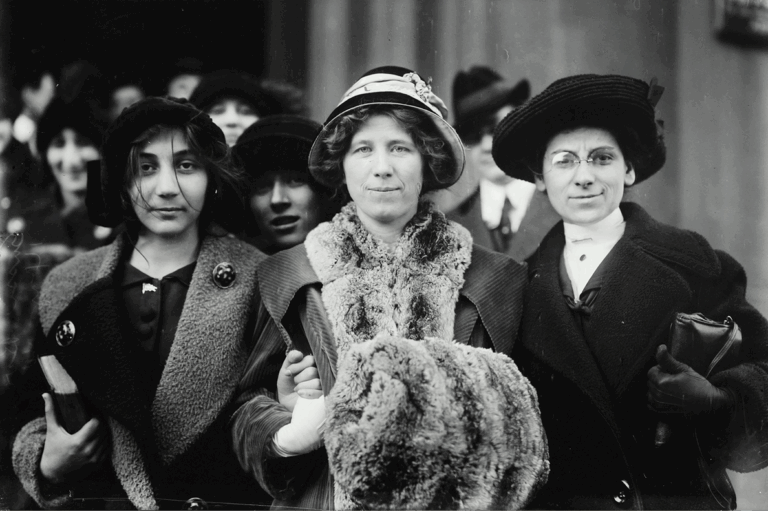
As long as there’s an “old boys’ club” in tech, says Helen Hawthorn, we will continue to need things like International Women’s Day. Zoom‘s EMEA Head of Solution Engineering sits down with Tech For Good to highlight the imperative of inclusivity in the tech industry. Helen’s reflections shed light on the progress made and the challenges yet to overcome.
Why is International Women’s Day still needed?
While we can and should reflect on the progress that has been made, International Women’s Day provides a global stage to raise awareness about the gender inequality and discrimination that still exist. We’re witnessing an increase in the number of female CEOs, more female technology influencers, and a greater diversity of roles in STEM fields. However, there is still much more to be accomplished and further action is needed.
When it comes to technology, there’s no question that women bring invaluable perspectives and experience. Naturally, women approach customers and colleagues with a nuanced sensitivity, typically able to empathise and step into their shoes. Similarly, when it comes to business goals, we think beyond financials and prioritise the day-to-day well-being of employees. However, even today, when you enter the boardroom of one of the big tech giants you will often be greeted by a predominantly white male
team.
On the 8th March, it is important for companies to reflect and be reminded that bringing women from diverse backgrounds into the boardroom will only enrich decision-making. When the same people always make decisions, it narrows the perspective. But including more voices helps businesses see things from different angles, making them better innovators in the world of technology.
How has your career journey in the tech industry been shaped by the principle of inclusion?
I started on a graduate program at BT in the early 2000s. From then and to now becoming Head of Solutions Engineering at Zoom, I have seen the technology world evolve, especially when it comes to inclusivity.
One career-defining moment for me was in my mid-20s. I was offered the opportunity to become a manager. Initially, I hesitated, especially when I learned that I would be managing eight men, who were the same age as my dad. Despite the challenges I faced during those years, where it seemed like everything that could go wrong did, it was this opportunity that molded me into the person I am today.

The experience that I gained through my hard work has made me determined to show what is possible. Unfortunately, even with all the hard work in the world, others are not given this experience nearly enough. I’ve made it my mission to show young women the overlooked roles in which women can excel and how they are within reach. I always remember one girl who described my role as a shopper for IT. A simple comparison, yet it resonated with her and made her curious.
Can you share any personal experiences or challenges you've faced as a female leader in a male-dominated industry, and how you've overcome them?
One major challenge to gender equality at work is the ‘old boys club’ mindset, especially in male-dominated fields like technology. While this won’t be resolved overnight, we need to involve more girls early on to pave the way for future leaders. This is seen in the boardroom, where women are often disregarded and not taken as seriously. I remember a time when I was asked to speak at a big event, and someone commented that I’d been selected because “they needed a woman.” Instead of feeling discouraged, I used it as motivation to go out and give a great speech that proved why I was qualified to be there.
Another challenge I’ve heard from many women, not only in the tech industry but in various fields, is the inherent guilt we feel as mothers. Mothers carry immense responsibilities, and often there’s guilt attached to this. However, I am optimistic that with the introduction of new technology and hybrid working, we will see an improvement. I was able to work from home during pregnancy and the early years of my child’s upbringing. This flexibility allowed me to drop off and pick up my child from school daily, ensuring I didn’t miss out on important moments like concerts and sports days. I deeply appreciate this. It’s remarkable that the same technology I implement in business has enabled me not only to work effectively but also to advance into a management position. I doubt I could have achieved this without it.
How can tech players support and promote women's participation?
Companies like Zoom play a vital role in promoting women’s entrepreneurship, recruiting, and developing talent at a young age, as well as fostering inclusion in leadership across STEM fields. Additionally, designing infrastructure to meet women’s needs and providing access to education and training are essential steps. By addressing these areas, tech companies can contribute to greater gender equality and empowerment.
An example of this would be challenging the traditional 9-5 model. It is important to encourage employees to find their optimal working hours, whether they mean starting earlier or working later, to deliver their best output. At Zoom we’ve proven that providing the right tools and treating employees as responsible adults fosters both productivity and loyalty.
How is Zoom fostering inclusivity in the workplace?
People are at the heart of our business. We actively seek a diverse range of candidates to join our team and prioritise inclusivity in our hiring processes. It’s crucial to recruit talent that reflects our diverse customer base.
We partner closely with talent acquisition, external experts, and our employer brand team, along with other teams at Zoom, to create and implement programs focused on who we hire and how we hire them. We also offer various internship and apprenticeship programs across the company because I believe it’s essential to get young people into the office, which doesn’t happen often enough.
As senior leaders, it’s great to engage with schools and local community projects, to showcase the exciting work we do. Our work involves a lot of innovation and problem-solving, and we want to inspire girls at an early stage.
Why is addressing AI-driven discrimination so important?
With the rise of AI, addressing AI-driven discrimination is incredibly important in the context of gender equality, where women often face systemic biases and discrimination.
AI algorithms trained on biased data can perpetuate gender stereotypes and inequalities that women have historically fought against. I believe the effort to combat this is to promote inclusivity in AI development teams.
Women are underrepresented in the tech industry, and by promoting diversity, conducting rigorous bias assessments, and implementing appropriate measures, we can try to mitigate and prevent gender-based AI discrimination.



